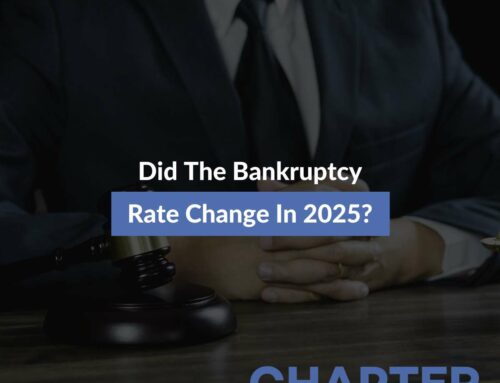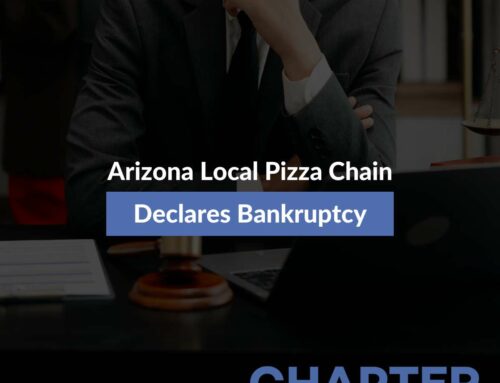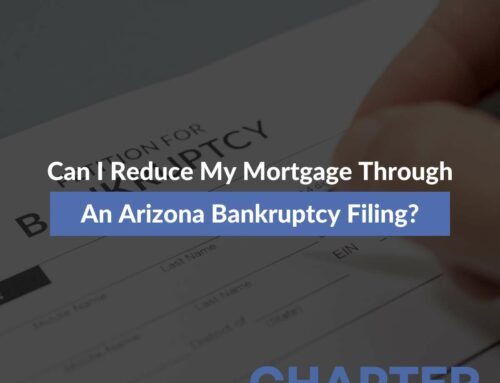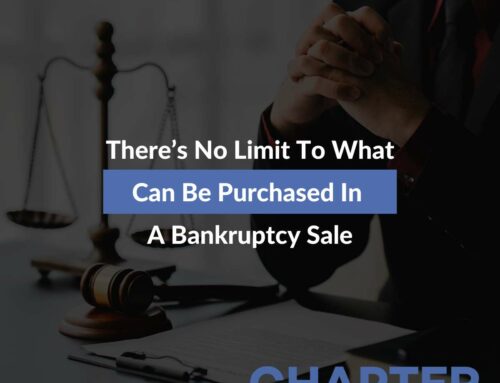How Bankruptcy Can Help You After a Divorce In Arizona
One of the leading causes of bankruptcy in Arizona and throughout the United States is divorce. Just like a medical emergency, natural disaster, and a job loss, many people struggle to adjust to their new financial situations after a divorce. Depending on the root of your financial issues, bankruptcy may be an effective option to get your finances back on track. Read on to learn more about how bankruptcy may help you after a divorce, then schedule your free consultation with one of our experienced Arizona bankruptcy attorneys!

Is It Too Late To File For Bankruptcy Now That My Divorce Is Finalized?
In some situations, it is preferable to file bankruptcy before filing divorce. This allows a couple to square away community property debts together, and saves money on divorce attorney fees during property division. This may be a better option if the couple largely has community property debts. However, assets are frozen during bankruptcy and a divorce can’t be completed until the bankruptcy is first. Or, one spouse may have significant separate property debt, and the other spouse doesn’t want to tarnish their credit with a bankruptcy filing. Even if you have community property debts after a divorce, it isn’t too late to declare bankruptcy.
What Is Chapter 7 Bankruptcy Filing?
This is the most common type of consumer bankruptcy. In Chapter 7 bankruptcy, unsecured debts are liquidated and discharged in a period of approximately 4 to 6 months. For those who qualify, this can be a highly effective form of debt relief, discharging thousands of dollars in debt at a relatively low cost. While there are several things that could disqualify you from Chapter 7 or making filing infeasible, there are two main factors of concern- income and assets.
To qualify for Chapter 7 bankruptcy, you must show that you don’t have sufficient income to pay your debts. You will automatically qualify if your income is less than your state’s median income based on your family size. If not, you will need to use the Means Test to qualify for Chapter 7. This test deducts mandatory expenses- like your mortgage, student loans, child support, and more- from your average monthly income. If that number is negative or falls under a certain threshold, you will be eligible for Chapter 7. If not, you may want to consider Chapter 13.
Another thing that could keep you from filing Chapter 7 is your property. In Chapter 7 bankruptcy, any assets that aren’t protected by your state’s exemptions (or federal exemptions, if your state allows for their use) could be seized by your trustee and sold to pay your creditors. Some states’ exemptions are especially modest, so consult with a bankruptcy attorney to make sure all of your assets will be protected before filing Chapter 7. These exemptions don’t apply in Chapter 13.
What Is Chapter 13 Bankruptcy Filing?
Chapter 13 bankruptcy, or a wage earner’s bankruptcy, is a payment plan debt reorganization that lasts 3 or 5 years. If the debtor falls under the state median line as described above, the payment plan will last 3 years. If the debtor makes more than the state median income for their family size, the payment plan will last 5 years.
Debts will be paid in four categories. First, the payment plan will pay off legal fees related to the bankruptcy. Next, secured debts will be paid in full (except your mortgage- you will include your standard monthly payments as well as any balance in arrears in your plan). Third, priority debts are paid off in Chapter 13. The last debts to be paid off are unsecured debts, like credit cards, medical debt, personal loans, repossession deficiencies, unpaid utility bills, and more. The first three categories must be paid off in full in your payment plan. However, debts in the fourth category only need to be paid to the extent that your disposable monthly income allows for them to be discharged.
Can I Discharge Child Support & Spousal Maintenance In Bankruptcy?
No. These debts can’t be discharged in bankruptcy. These debts also can’t be modified retroactively. This means if you go to the court to reduce your support payments, they will only be reduced from that point forward. You are also subject to interest on any back child and spousal support. If you have a debt problem that is making it hard for you to keep up on your court-ordered support payments, it’s better to address your financial situation sooner rather than later.
Income Qualification After a Divorce
When calculating your income for bankruptcy purposes, you will use your average income over the past 6 months combined with your spouse’s, if applicable. This can make qualifying for Chapter 7 bankruptcy difficult in a dual income home, especially if the spouses have children who are over the age of 18. The silver lining to your divorce may be that it will get you to qualify for Chapter 7, when you only would have qualified for Chapter 13 before your divorce. If you file Chapter 13, your plan payments will be based on your income alone. Your plan payments could also be reduced if you are ordered to pay child or spousal support.
Can The Automatic Stay From Bankruptcy Protect Me After a Divorce?
When a bankruptcy petition is filed under either Chapter 7 or Chapter 13, a protection known as the Automatic Stay goes into effect. The Automatic Stay stops your creditors from garnishing your wages, shutting off your utilities, foreclosing your home, repossessing your vehicle, and more. The Automatic Stay remains effective until your case is discharged or dismissed, with limited exceptions. This is a highly coveted benefit of bankruptcy, but it may not serve the purpose you need.
One of the caveats of the Automatic Stay is that wage garnishments from domestic obligations, i.e., child support and alimony, won’t be stopped in a Chapter 7 bankruptcy. They will also only be stopped in a Chapter 13 bankruptcy if the payment plan arranges for full payment of the balance in arrears. So if you are seeking protection from ordinary creditors, both chapters of bankruptcy will help you. If you want to stop a domestic obligation wage garnishment, you will need to use a Chapter 13 bankruptcy that arranges for full repayment of these debts.
Our Tempe Bankruptcy Attorneys Can Help You Navigate Debt After Divorce
Do you need more information about how bankruptcy could help you with debt after a divorce? Our experienced Mesa chapter bankruptcy lawyers offer free consultations. Therefore, you can make an informed decision about whether to file. Additionally, our Chapter Bankruptcy Lawyers also offer affordable rates and payment plans. Most of our clients qualify for our post-filing zero down payment plans! To learn more, contact us or use our online form to schedule your free consultation today.
get IN TOUCH
with an experienced Arizona bankruptcy attorney
Chapter Bankruptcy Lawyers
Mesa Office
3707 E Southern Ave
Mesa, AZ 85206
Phone: 480-405-1010
Email: [email protected]
Tempe Office
4500 S Lakeshore Dr #300
Tempe, AZ 85282
Phone: 480-562-6145
Email: [email protected]







